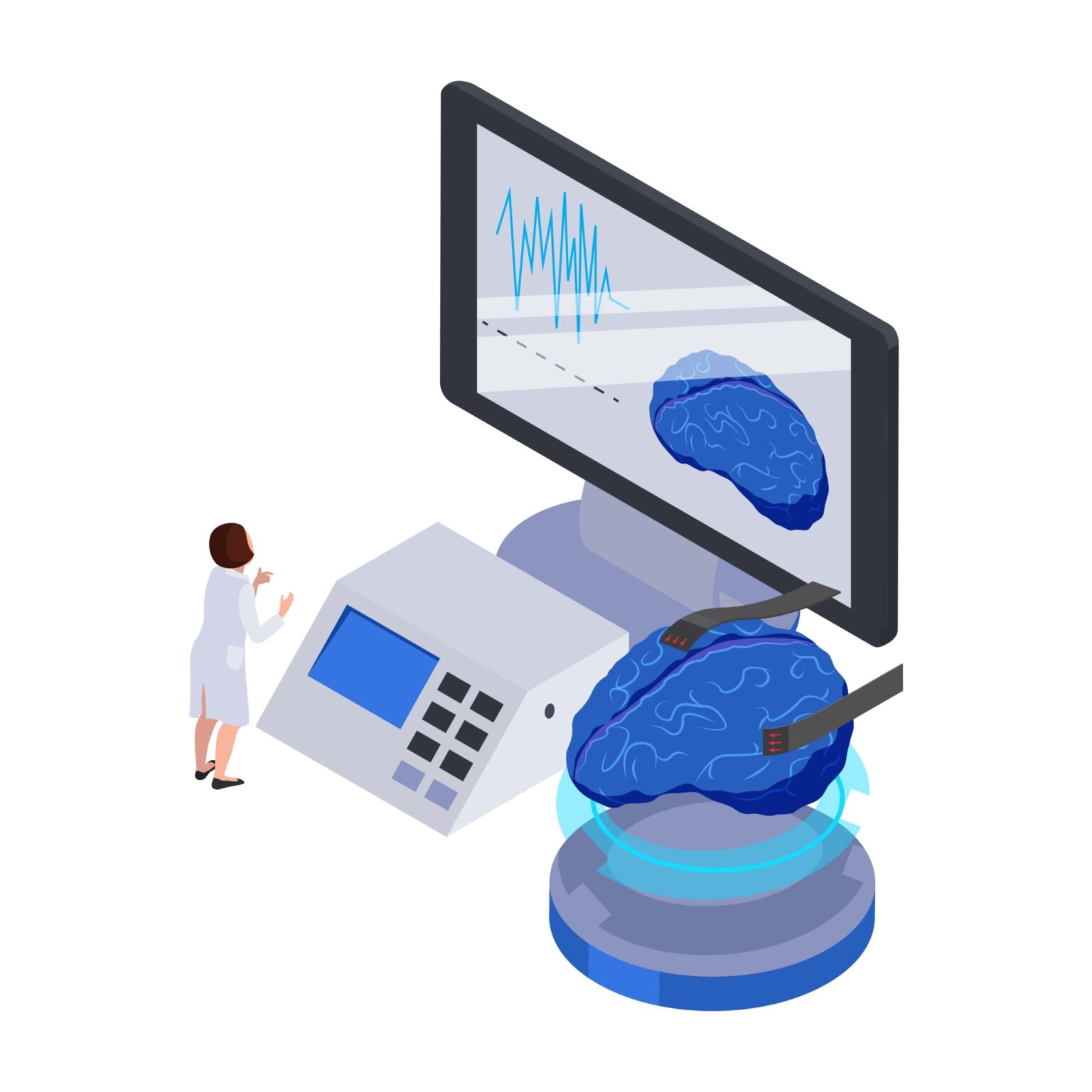Brain-computer interfaces (BCIs) are innovative technologies that establish a direct communication pathway between the brain and external devices or computer systems. BCIs hold great potential in restoring functionality and treating neurological disorders. They enable individuals to control external devices, communicate, and even regain mobility using their thoughts. Here are some key aspects of BCIs in restoring functionality and treating neurological disorders:
- Motor Function Restoration: BCIs can restore motor function in individuals with paralysis or movement disorders. Electrodes implanted in the brain record neural activity associated with intended movements. This information is decoded and used to control prosthetic limbs, exoskeletons, or assistive devices. By translating neural signals into commands, individuals can perform actions such as grasping objects, typing, or walking, enhancing their independence and quality of life.
- Communication and Augmentative and Alternative Communication (AAC): BCIs provide a means of communication for individuals with severe motor impairments or conditions such as locked-in syndrome. By detecting and decoding neural activity related to language or specific commands, BCIs can enable individuals to select letters or words on a computer screen, convert them into synthesized speech, or operate communication devices directly from their thoughts.
- Stroke Rehabilitation: BCIs have shown promise in stroke rehabilitation by promoting neuroplasticity and facilitating motor recovery. Neural signals recorded from the brain can be used to drive functional electrical stimulation (FES) devices, assisting in the rehabilitation of weakened or paralyzed limbs. BCIs can also provide real-time feedback to patients, promoting motor learning and facilitating recovery.
- Epilepsy Management: BCIs can be used to monitor and predict epileptic seizures. By detecting abnormal brain activity patterns associated with seizures, BCIs can provide early warnings or trigger interventions, such as drug delivery or electrical stimulation, to prevent or reduce the severity of seizures. This technology has the potential to significantly improve the quality of life for individuals with epilepsy by increasing seizure control and reducing the side effects of medications.
- Cognitive Enhancement and Neurofeedback: BCIs can enhance cognitive functions by providing neurofeedback and facilitating neuroplasticity. By monitoring brain activity, individuals can receive real-time feedback on their cognitive state and learn to modulate their brain activity patterns. This can be particularly beneficial in attention deficit disorders, improving focus and cognitive performance.
- Neuroprosthetics and Sensory Substitution: BCIs can restore sensory perception in individuals with sensory impairments. For example, visual prostheses can convert visual information into electrical signals that stimulate the visual cortex, allowing blind individuals to perceive patterns of light or shapes. Similarly, auditory prostheses can stimulate the auditory nerve to restore hearing in individuals with hearing loss.
- Neurorehabilitation and Neurofeedback: BCIs enable personalized neurorehabilitation by providing real-time feedback on brain activity patterns. This feedback can be used to guide individuals through targeted rehabilitation exercises, promoting neuroplasticity and facilitating recovery from brain injuries or neurodegenerative disorders.
- Research and Development: BCIs continue to advance through ongoing research and development efforts. Scientists are exploring new electrode technologies, signal processing algorithms, and machine learning techniques to improve the accuracy, longevity, and usability of BCIs. Additionally, BCIs are being studied for their potential in treating a wide range of neurological disorders, such as Parkinson’s disease, spinal cord injuries, and psychiatric conditions.
- Ethical Considerations and Privacy: The use of BCIs raises important ethical considerations, including privacy, data security, and informed consent. As BCIs involve the direct access and manipulation of brain activity, it is crucial to ensure the privacy and security of neural data and protect individuals from potential misuse or unauthorized access.
BCIs hold tremendous promise in restoring functionality and improving the quality of life for individuals with neurological disorders. Continued advancements in BCI technology, coupled



